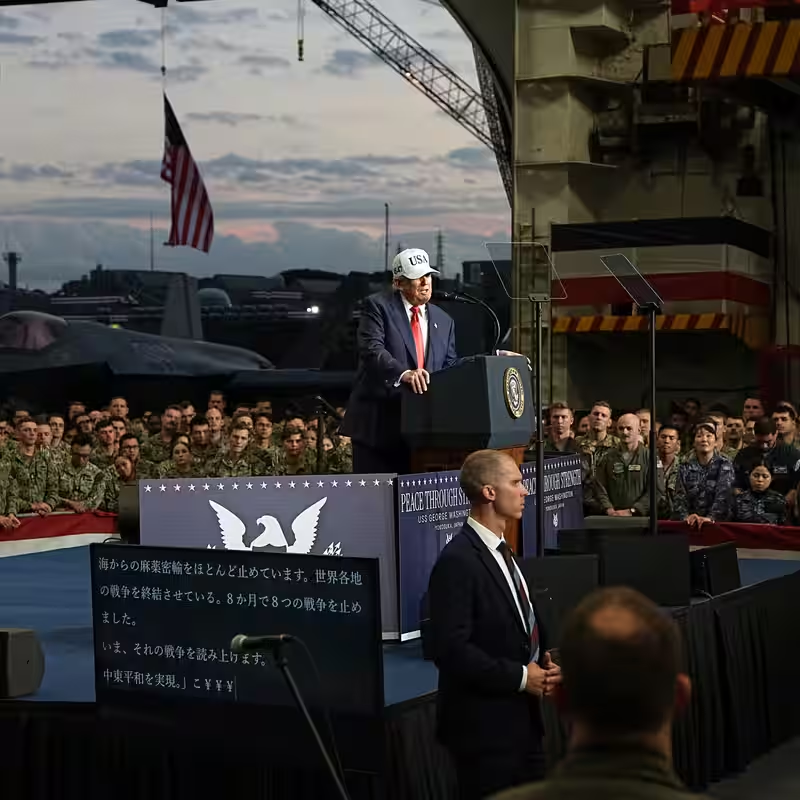President Donald Trump has escalated his rhetoric on domestic law enforcement, declaring he is ready to send “more than the National Guard” into U.S. cities—a statement that has reignited debate over the military’s role in civilian affairs.
Table of Contents
- Trump’s Remarks During Japan Troop Address
- Legal Limits on Using Active-Duty Troops Domestically
- Immediate Political and Public Reaction
- Historical Precedents and Controversies
- What Happens Next?
- Sources
Trump’s Remarks During Japan Troop Address
Speaking to thousands of U.S. service members aboard an aircraft carrier at Yokosuka Naval Base in Japan on Tuesday, President Trump delivered a fiery, hour-long speech that blended campaign-style rallying with stark warnings about crime, immigration, and urban unrest .
“If I decide it’s appropriate, we’re going to send more than the National Guard into our cities,” Trump said, without specifying which cities or under what conditions. “We’re going to restore order—by any means necessary.”
The comments came amid rising concerns over violent crime in several major U.S. metropolitan areas and ongoing immigration enforcement operations along the southern border.
Legal Limits on Using Active-Duty Troops Domestically
Under the Posse Comitatus Act of 1878, the use of federal military personnel to enforce domestic laws is heavily restricted. While the National Guard can be deployed by state governors or federalized under certain emergencies, active-duty U.S. Army, Navy, Air Force, or Marine Corps troops are generally prohibited from engaging in civilian law enforcement.
Exceptions exist—such as during insurrections (under the Insurrection Act)—but invoking them requires clear evidence of widespread civil breakdown. Legal scholars warn that any broad deployment without such justification could face immediate court challenges.
Immediate Political and Public Reaction
Democratic leaders swiftly condemned Trump’s statement. “This isn’t leadership—it’s intimidation,” said Senate Majority Leader Chuck Schumer. “The military defends our Constitution, not polices our streets.”
Even some Republican lawmakers expressed caution. “We must respect the line between defense and domestic control,” said Sen. Lisa Murkowski. “Blurring it undermines both public safety and civil liberties.”
Meanwhile, advocacy groups like the ACLU called the remarks “deeply alarming,” warning they could normalize militarized responses to social issues like homelessness or protest movements.
Historical Precedents and Controversies
Presidents have invoked the Insurrection Act sparingly: Eisenhower sent troops to enforce school desegregation in Little Rock (1957); George H.W. Bush deployed federal forces during the 1992 Los Angeles riots.
Trump previously threatened to use the military during the 2020 George Floyd protests, prompting then-Defense Secretary Mark Esper to publicly oppose the idea. The current statement suggests he remains committed to that posture if re-elected or granted expanded authority.
What Happens Next?
While no formal orders have been issued, Trump’s comments are likely to fuel legal and political battles ahead of the 2026 midterms. The Department of Defense has not commented on operational plans, and the White House has not clarified what “more than the National Guard” entails.
For now, the statement stands as a stark signal of Trump’s governing philosophy—one that prioritizes “law and order” through force, even at the risk of constitutional norms.




